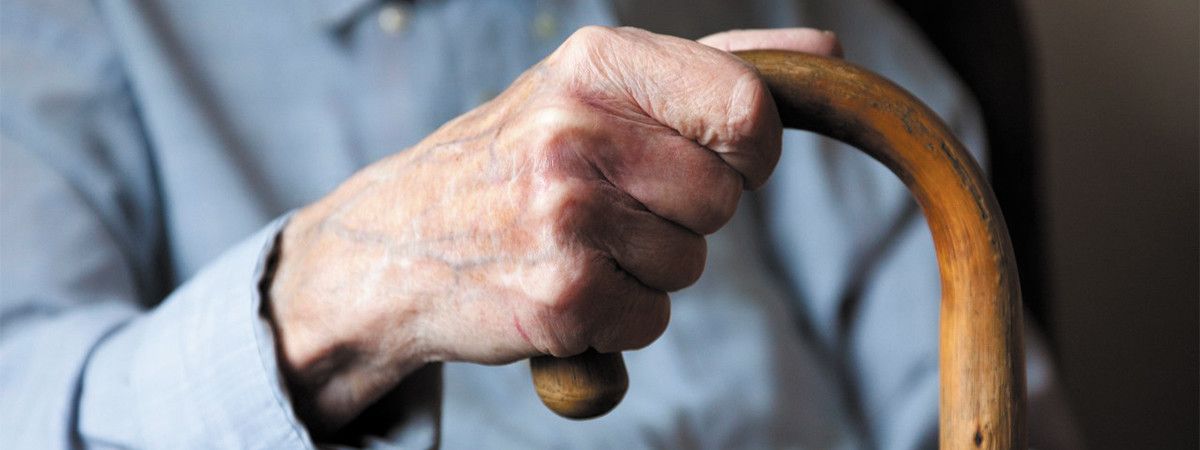
DEAR LIFE
Correspondence
We begin to die as soon as we are born, and the end is linked to the beginning.
– Bret Harte
Modern medical science compartmentalises the body, carving people up like cows in a butcher’s shop. Problems with your bones get you sent straight to an orthopaedic surgeon, brain disorders have patients trotting off to see a neurologist, and liver disease buys you a ticket to the waiting room of some slick hepatologist. In the same way, we tend to carve up life: infants are put into creche, toddlers packed off to kindergarten, kids to school and adults to work. But what about the elderly, asks Karen Hitchcock – where is their place in society? What she discovers is that the answer in the main is “Who cares?”
Hitchcock’s intelligent and challenging essay tackles our ingrained ageist attitudes head-on. Her premise is that contemporary society, on the whole, fails to treat its senior citizens with due dignity and respect. Yet our attitudes to the elderly are only a part of the conversation that we need to be having. To me, there is bitter irony in the fact that when we examine the fate of the elderly in isolation from our collective life-cycle, we fail to address the core issue: our contemporary inability to discuss death openly. We have edited Death right out of the manuscript of our lives.
Do we have a problem because people are living longer, or is our increased longevity making us uncomfortable because those on the threshold of the abyss remind us of our collective fate? The old are merely the final chapter of an ancient narrative we don’t want to listen to anymore – but the fact is that death is an inexorable part of life.
As a family physician, I have the “life and death” conversation every day, with people of all ages, reminding them that, as Joan Didion says, “Life changes in the instant.” It’s a huge bullshit-cutting factor and most people appreciate the reminder. Hitchcock works as a specialist in a large, inner-city hospital. Due to the way the system is structured, she sees a skewed population: people at their very worst, brought in by either massive crisis or slow rot. Her vignettes are poignant, but this is a tiny slice of a patient’s life, which does not include the crucial grassroots roles that community nurses, GPs, allied health practitioners, families and the broader community have to play in the continuity of care for the elderly.
If we are to take a more holistic approach to medicine, we need to see the patient as a complex organism, in which body and mind form an integrated homeostatic system. So, too, when we come to talk about life and ageing, we must talk about death. In fact, it is impossible to have any meaningful discussion about the elderly in our society if we do not examine our attitudes to mortality. And the medical profession should be first in line. Doctors are so focused on saving and maintaining lives that death has become the enemy. The militant stance we take in our ‘fight’ against heart disease or our ‘battle’ with cancer, leads to the notion that allowing patients to die of natural causes is somehow the ultimate failure.
Attitudes to old folk are a symptom of a far broader issue – that of death denial. This is reflected not only in how we live our lives, but also in debates over climate change and the way we deny that resources are limited on our dying planet.
What to do? Death could do with some rebranding. And if Paul Benner has anything to do with it, this is just “another design challenge.” As chief creative officer at a global design firm, he has one simple goal: “I don’t want death to be such a downer.” The past few years have also seen the mushrooming of Death Salons, Death Cafés and Funeral Celebrations. It seems the Grim Reaper is Gen Y’s new bestie, and death is becoming the new black; the only problem is, the elderly themselves don’t seem to have received an invitation to the party.
Leah Kaminsky
CONTINUE READING
This is a reply to Karen Hitchcock’s Quarterly Essay, Dear Life: On caring for the elderly. To read the full essay, login, subscribe, or buy the book.
ALSO FROM QUARTERLY ESSAY










